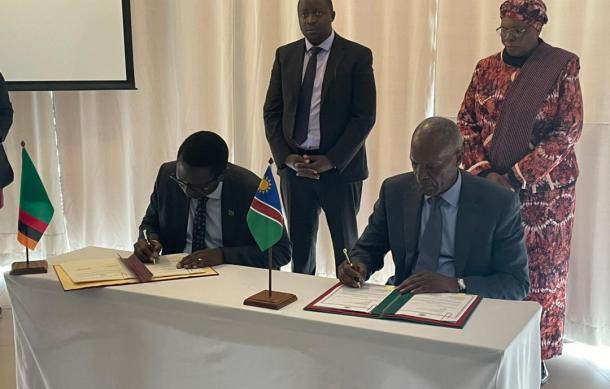
The governments of Namibia and Zambia have signed an agreement to facilitate the construction of a pipeline for oil and gas products.
The pipeline project, which will be led by the private sector, is expected to address energy poverty in Southern Africa.
The agreement was signed at the 10th session of the Namibia-Zambia Joint Permanent Commission on Co-operation at Swakopmund.
The oil and gas pipeline will stretch from Zambia to the port of Walvis Bay, promoting the harbour as a logistics hub in Southern Africa.
Namibia's Mines and Energy Minister, Tom Alweendo, noted that the project is a great example of regional cooperation that can unlock the region's economic potential."More than 600 million Africans do not have access to energy, clean energy. And we have also come to the realisation that from now onwards for the next couple of decades, gas is going to be one of the biggest energy sources on the continent. But for that to also happen, we need to have the distribution infrastructure to make sure that the people have access to that gas."
The agreement makes provision for the two governments to establish a technical committee that can work with the private sector leaders to develop the infrastructure. "I'm simply urging those who are going to serve on this committee to make sure that they are going to be diligent in their work and to quickly identify those areas where actions need to be taken and also what kind of actions need to be taken, by who and by when, because that's the only way we are going to make sure the MoU means something."
Alweendo's Zambian counterpart, Peter Kapala, also welcomed the agreement. "Given the volatility of international oil and gas prices, there is a need to take advantage of means that reduce the cost of delivering petroleum products and natural gas to our respective people. It is for this reason that I'm glad that our two countries have achieved this milestone of agreeing to cooperate in supporting the development of such key infrastructure."
Kapala revealed that the pipeline, once completed, will supply between 100 000 and 120 000barrels of refined petroleum products per day to the two countries and the rest of Southern Africa.





